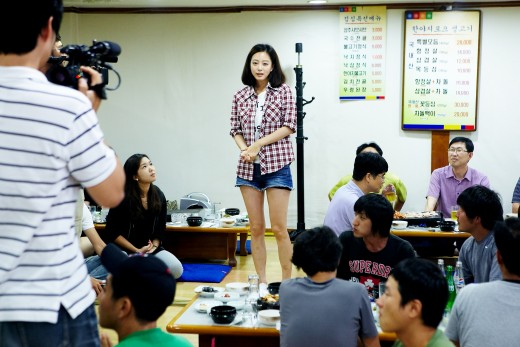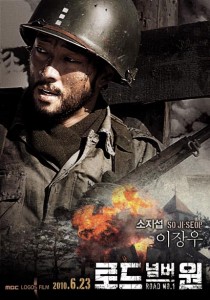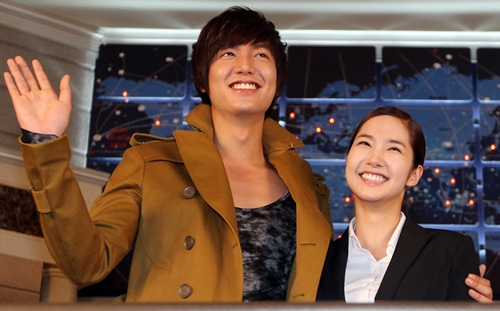 Han Ye Seul publicly apologizes to cast-and-crew during lunch break
Han Ye Seul publicly apologizes to cast-and-crew during lunch break
No one can deny that Korea’s latest entertainment scandal revolved around the conflict on the Spy Myung Wol set and its disappearing-now-returning leading lady, Han Ye Seul. Mixed comments and news had spread wildly all over the blogosphere: KBS officials held a press conference and called the actress out for being unprofessional in her adamancy to not come back to the production set, Sidus HQ apologized on her behalf but also threatened to sue their talent, a few cast and crew members provided some critical insight onto the goings-on between Han Ye Seul and the PD, and netizens were tussled between rooting for Han Ye Seul’s supposed rebellion against her tight, stressful schedule and decrying against her work ethics. As for the actress herself, Han Ye Seul abruptly flew back to Los Angeles, only to mysteriously return two days afterward to resume work and publicly apologize to KBS, her agency, and her Spy Myung Wol cast and crew.
In such a situation where too many opinions are thrown around with little solid evidence, I have to question only one fact: the live-shooting process.
I have heard and read of both the pros and cons with this style of production shooting. For many South Korean studios, live-shooting is more financially advantageous in comparison to shooting a drama in its entirety before it airs – the networks can shorten the number of episodes if ratings are low and therefore allow more profitable dramas to be broadcasted sooner; script changes can be made to comply with viewer demands; whether dramas have the potential to be picked up are not; and the knowledge that few completed-before-airing television dramas are able to gain enough high ratings to match their even higher budget (proof: Friend, Our Legend, Road Number One). On the other hand, live-shooting has been a cause for strict and sleep-deprived schedules for both cast and crew, for numerous last-minute script change/alterations and episode cancellations that are detrimental to the quality of a drama, and for greater chances of accidents and tensions on- and off-set.


High-budget dramas with middling ratings
The question is now a matter of ethics, of what is of value to South Korea’s production companies and its entertainment industry overall – profit or people, the present or longevity?
Many newbies and idols-turned actors may be willing to work with such tough conditions in order to achieve stardom, but how many actually continue acting in dramas? Hasn’t anyone noticed that many A-list celebrities like Lee Byung Hun, Jang Dong Gun, Jeon Ji Hyun, and Kang Dong Won refuse to go back to acting in television dramas as soon as they possibly can? Some may occasionally come back to drama-land to reinforce their commercial appeal and to sustain public attention, but none seems to want to permanently reside there. Even then, however, head executives have to utilize a large amount of a drama’s budget to cover these actors’ paychecks.
Furthermore, I feel that over the years, behind-the-scene drama has prevalently overshadowed the actual dramas with actors getting into car accidents or collapsing on-set, technical issues, writer or PD clashes, salary lawsuits against production companies, etc. Such news denigrate production companies and networks – and oftentimes, even the actors themselves – as being untrustworthy and overspending.
Dramas making headlines for all the wrong reasons
Last of all, maintaining the production value of a drama is more profitable in the long run. Nowadays, I rarely finish a Korean drama due to the fact that halfway through, I can’t help but notice gaping plot-holes or an excess of (cheesy) angst, a deterioration in quality in terms of cinematography and editing, and even a lack of vigor and motivation from the actors. Eyecandy can only keep my attention for so long before I notice the flaws and change the channel.
Inevitably, if South Korea wants its Hallyu Wave to continue globally, then strengthen its production structure first. Even if networks are to continue with the live-shooting process, make it a safe and comfortable environment for the actors and crew so that the production is top-notch overall. Why shoot and re-shoot last-minute so that the drama is going to look and feel last-minute?




